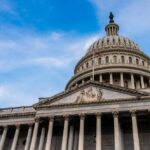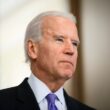The United States has a new President, and the fate of America’s economic recovery is riding on his shoulders. President Biden’s mission is to accelerate the rollout of much-needed vaccines.
Vaccine development happened faster than anyone in the previous administration might have forecasted. Rapid vaccine development has resulted in less than perfect distribution. In part, the problem can be laid on the doorstep of chaos associated with the presidential transition, which took place during the worst pandemic in more than a century.
On his first day behind the Resolute Desk, Biden signed numerous presidential orders, most of which were aimed at ramping up the testing procedure, as well as the distribution of the now available vaccines. Biden is involved in a race against the clock; if he fails to win, many more lives will be lost, and the economy is bound to sink further into the abyss.
Kristine Hooper, Chief Global Strategist at Invesco, suggests that there will not be a sharp economic rebound until there is broad vaccine distribution.
Slowing of the U.S. Economy
Although the U.S. economy was strong during the summer, it slowed dramatically towards the end of 2020 as the effects on the pandemic bit. The country lost jobs in December, the first decline since spring. During the final week of Donald Trump’s presidency, over 900,000 Americans filed first-time jobless claims.
President Trump’s former economic advisor, Mr. Kevin Hassett, suggested the American economy is looking at a negative spiral, one that could cause a contraction of GDP in the first quarter, not unlike it did a year ago.
By the middle of February, it is forecast that the pandemic will have killed more than 500,000 Americans. The new director of the CDC, Rochelle Walensky, does not think vaccines will be readily available in pharmacies across the country by February, although Trump officials forecast differently. President Biden’s goal is to distribute 100 million doses of vaccine within the first 100 days of his presidency. The CDC says the plan is still in place.
The Risk of the Country Stalling
Getting vaccines to the American public is critical as current health restrictions, and voluntary steps taken by individuals and communities are holding back growth, especially in the service sector. Box office sales, domestic air travel, and hotel occupancy, are and will remain, well below pre-pandemic levels.
Millions of people who rely on the service sector have been laid off. People who once relied on restaurants, hair salons, hotels, cruise lines, and numerous other industries no longer have employment. The chief financial economist at Jeffries says,” The recovery has to be driven by the service sector. Without that, the economy will stall.” The service sector cannot regain its importance until the current pandemic has been relegated to history.
There is a Crying Need for the Vaccine
President Biden is preparing to attach his signature to executive orders aimed at helping people in desperate need. The White House said the President will confer with the Department of Labor, asking that they clarify that workers who refuse to work due to unsafe conditions still receive unemployment benefits.
There is no doubt that executive orders will help, but President Biden needs Congress to support his moves by passing legislation that will have a bigger impact. Biden proposes a $1.9 trillion rescue package that calls for stimulus checks in the amount of $1,400 to almost every American making less than $75,000.
The stimulus under deliberation will also provide enhanced unemployment benefits, an aid package to state and local governments of $350 billion, and a further $400 billion to defeat the pandemic.
Americans in need hope that Congressional approval comes quickly as many are running out of much-needed resources.
The Markets Are Unfazed at the Moment
Some economists, as well as some members of Biden’s party, are concerned about the proposed size of the president’s proposal.
Economists are of the opinion that the proposed rescue effort will help, but there is an underlying problem that also must be addressed. The recovery needs the service sector. Without it, progress will be difficult to attain, regardless of the stimulus dollars made available.
Wall Street continues to ignore the pandemic and the less than spectacular vaccine rollout. Both the S&P 500 and Nasdaq finish trading at record highs last week.
It appears that markets are being pumped by emergency policies that are prompting investors to bet on stocks. Investors remain optimistic that the economy as a whole and corporate profitability will eventually recover.
WeInvests is a financial portal-based research agency. We do our utmost best to offer reliable and unbiased information about crypto, finance, trading and stocks. However, we do not offer financial advice and users should always carry out their own research.
Read More













